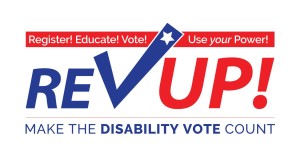
On Wednesday, November 30, 2016 the National Council on Independent Living’s Diversity Committee will release a project titled “We Can’t Breathe: The Deaf & Disabled Margin of Police Brutality Project.” This project includes a video and toolkit that can be utilized for educational training for disability organizations and agencies. The We Can’t Breathe Video discusses the narratives of 5 people with disabilities on the margins that have been victimized by police brutality and other forms of systemic violence. The We Can’t Breathe Toolkit was designed to equip disability organizations, agencies, and community members with the tools to process the video and build policies, programming, and advocacy that center intersectional organizing. The We Can’t Breathe Project addresses how state violence affects people with disabilities who are also women, people of color, and LGBTQ+. This training intentionally utilizes an intersectionality framework to combat the racism, sexism, homophobia and transphobia that pervade disability organizations and agencies.
In conjunction with the release of the We Can’t Breathe Project, there will also be a Facebook and Twitter chat on November 30th from 7:00 p.m. – 8:00 p.m. ET. Anyone can participate in these conversations through the Facebook event page and the twitter hashtag #DisabilitySolidarity. For more information contact Keri Gray ([email protected]) or Dustin Gibson ([email protected]).
 The questionnaire was sent to all of the current presidential candidates on 20+ state ballots. To date, Dr. Stein is the third candidate to respond to the questionnaire, following Secretary Clinton and Mr. Trump.
The questionnaire was sent to all of the current presidential candidates on 20+ state ballots. To date, Dr. Stein is the third candidate to respond to the questionnaire, following Secretary Clinton and Mr. Trump. Voting is an important civic duty, but don’t forget that it can be a fun and patriotic way to celebrate our love of our country and community and our freedom to elect our leaders. Here are some fun ways for you and your organizations to take pride in exercising your right to vote.
Voting is an important civic duty, but don’t forget that it can be a fun and patriotic way to celebrate our love of our country and community and our freedom to elect our leaders. Here are some fun ways for you and your organizations to take pride in exercising your right to vote.
